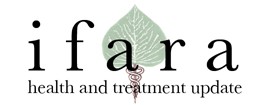IFARA (the International Foundation for Alternative Research in AIDS) was formed by a core group of early HIV/AIDS activists living in the communities of southeastern Florida in the early 90s. Early research advancements into the retrovirus were perceived (rightly) as sluggish and lackluster. Treatment options were ineffective at best and adversely affective at worst. The HIV community responded with fear and anger. Early HIV/AIDS activists looked for alternative treatment options, and for resources that aggregated and distributed that information. IFARA made a splash in Miami with its 1992 inception. The first days were ones of fantastic fundraising successes and national notoriety. IFARA volunteers regularly garnered the ear of congressional representatives, state and federal health officials, cutting edge research teams, and national activists.
As research progressed and treatments improved, IFARA’s focus shifted away from alternatives. Confronted with a deeply confounding and complex disease, IFARA leadership increasingly felt that the HIV community needed an ombudsman: a representative that gathered information from government and the scientific community, parsed it, and made it available to whomever wanted it. The 7th annual Conference on Retroviruses and Opportunistic Infections marked the first year that IFARA interviewed leaders in the retroviral research field and conducted panel discussions for the benefit of community constituents.
IFARA has continued in this role for almost fifteen years. IFARA has regularly appeared at the International Workshop on HIV and Aging, the International Workshop on Co-morbidities and Adverse Drug Reactions in HIV, the Conference on Retroviruses and Opportunistic Infections, and the International AIDS Society annual meeting. IFARA leadership are regularly invited to attend workshops with major pharmaceutical companies, sit on the boards of sister organizations, and continually sift through cutting edge research, reaching out to the best and brightest in the relevant fields of research and inviting them to donate time to explaining their current work to IFARA’s nationwide audience. IFARA attempts to reach minority communities, regularly broadcasting panels in Spanish, French, and Mandarin, and producing programs tailored to the African American and Native American communities, amongst others. For a number of years IFARA has produced annual updates on Women in Research, to great acclaim.
As the disease and treatments have evolved, IFARA continues to evolve with them. Hepatitis coinfection and other comorbidities increasingly take center stage in retroviral research. The confusing profusion of research areas and treatment regimens continually challenges IFARA to expand programming. More recently, IFARA has begun devoting resources to health and diet wellness programs aimed at combating the devastating effects of accelerated aging and metabolic disruption.
